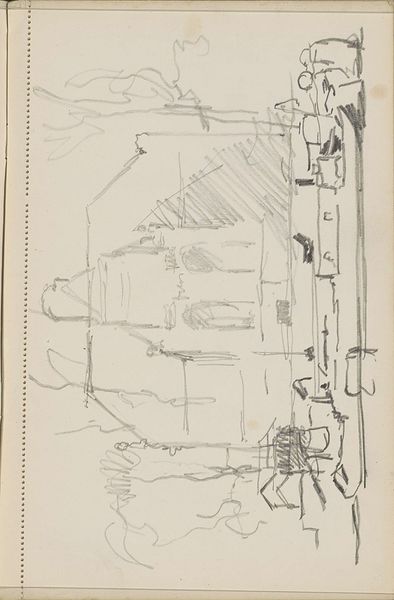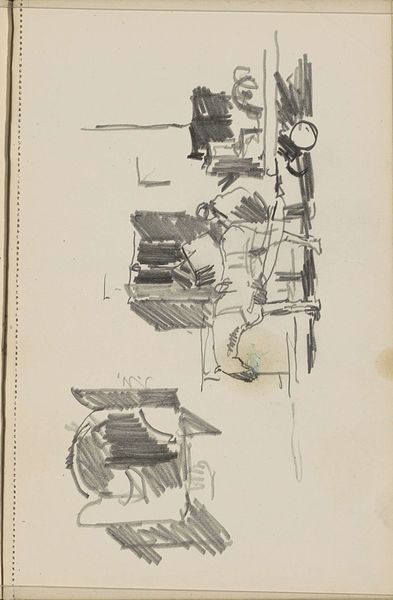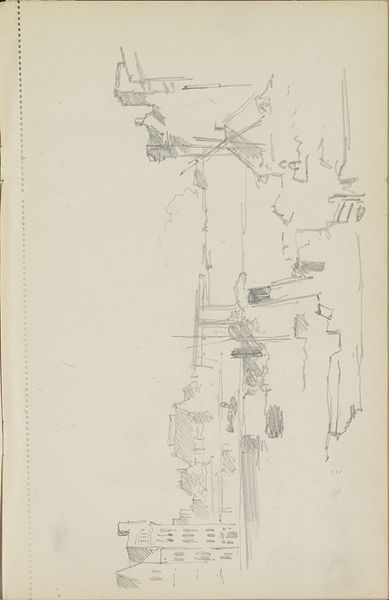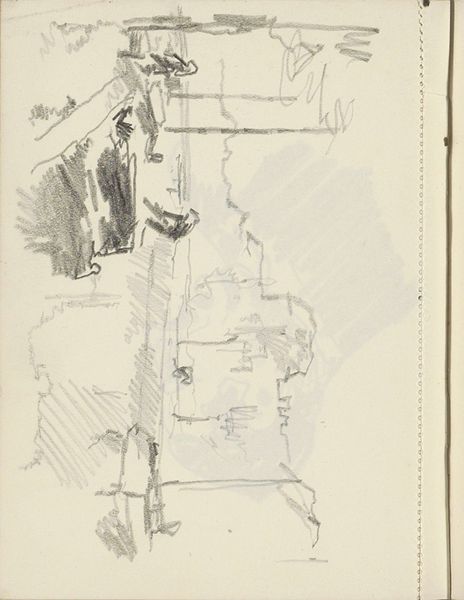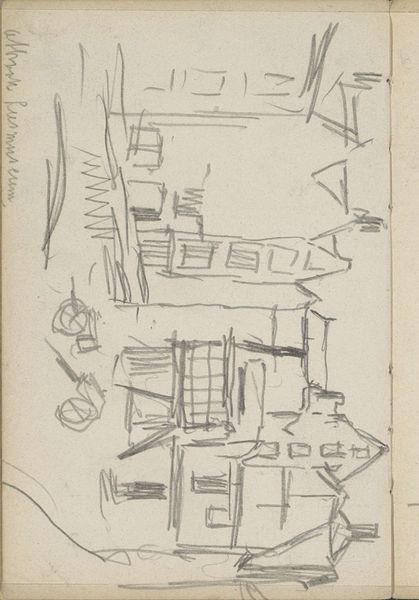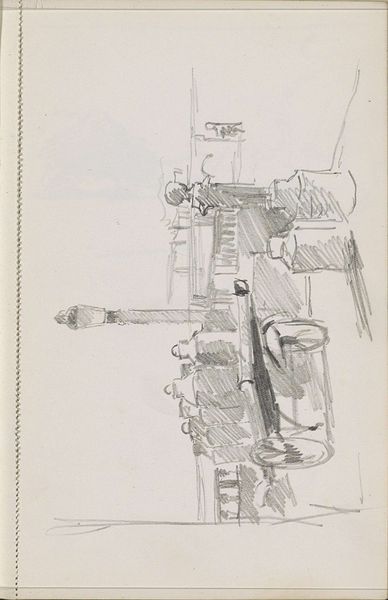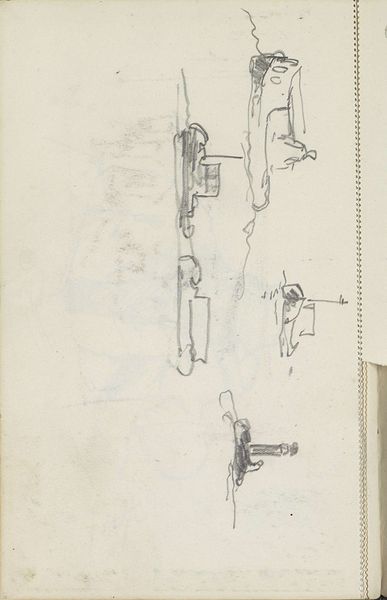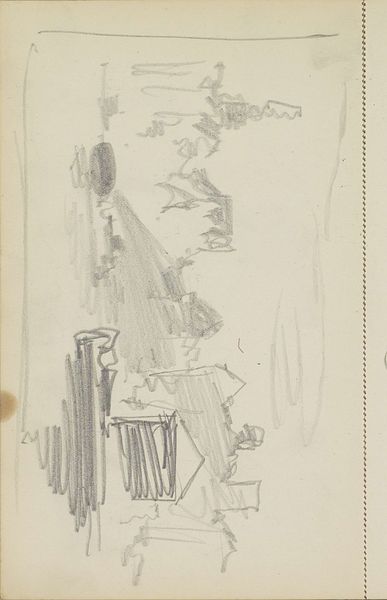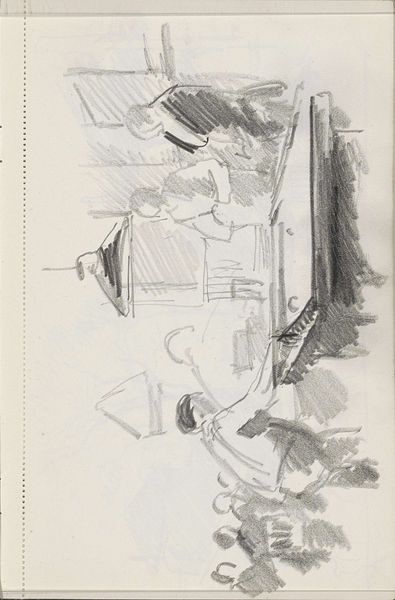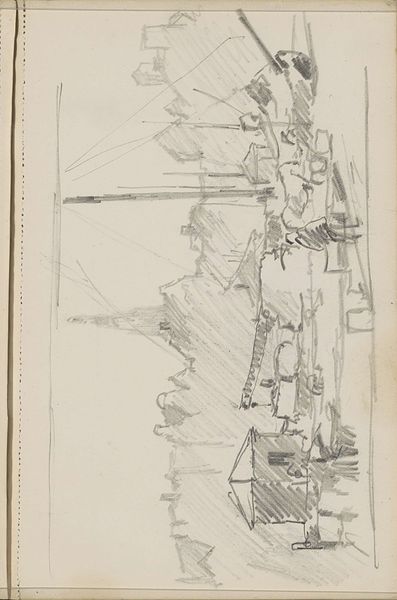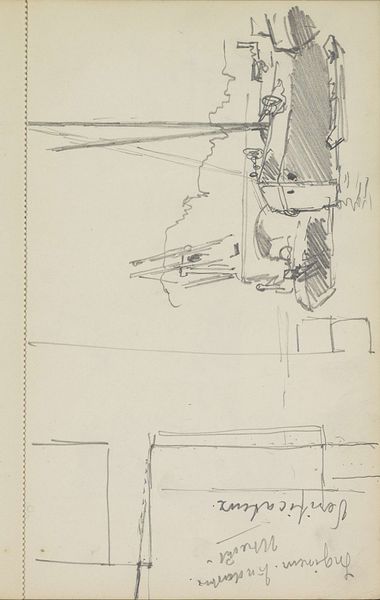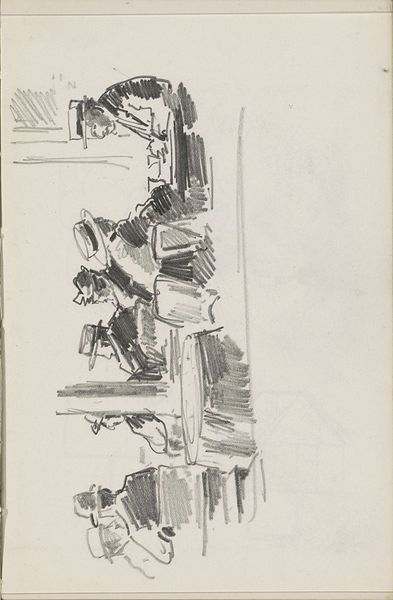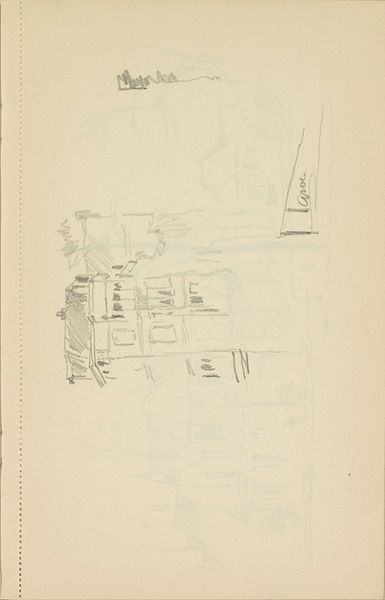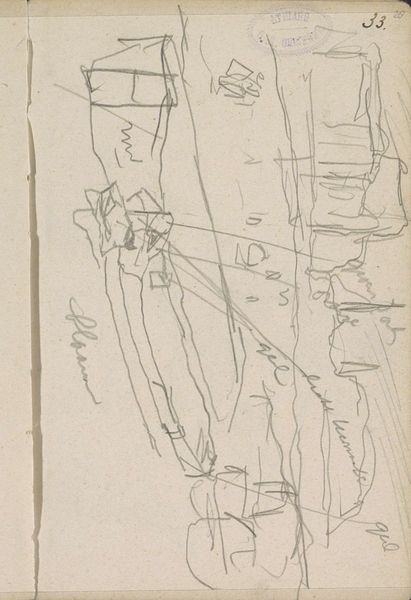
drawing, pencil
#
drawing
#
landscape
#
geometric
#
pencil
#
line
#
realism
Copyright: Rijks Museum: Open Domain
Editor: This is "Havenwerkers op een kade," or "Dock Workers on a Quay," a pencil drawing made sometime between 1890 and 1946 by Cornelis Vreedenburgh. It’s currently held at the Rijksmuseum. The lines are so delicate, but there’s a starkness in the geometric shapes against the human figures that feels a bit melancholic to me. What catches your eye? Curator: The sketchiness is deceptive, isn't it? What appears spontaneous is actually a careful arrangement of symbols related to labor and industry. Notice the crane dominating the upper part. Historically, cranes weren't just machines; they represented human ingenuity, progress, and the sometimes-harsh power of industry over individuals. What feeling does that dominance evoke for you? Editor: It makes me feel small, I guess. Like the figures are almost being dwarfed. Curator: Precisely! These aren’t heroic figures, but rather types – almost anonymous in their posture and rendering. They stand for the countless workers who fueled the industrial era. And even the 'landscape' itself, stripped down to stark lines, evokes the functional rather than the idyllic. Do you think that makes it more impactful as a symbol of that era? Editor: It definitely does. I was seeing melancholy, but the symbol of labor, viewed this way, takes it to another level! I am struck at how the artist shows a broader system at work and its relationship to the people. Curator: Exactly. This drawing serves as a visual anchor to cultural memory, reminding us of the human cost intertwined with industrial advancement, and continues to speak volumes about the relationships between people, place, and industry today. Editor: Thanks. I see so much more now. The sketch becomes a potent reflection on progress and the individuals caught within its gears.
Comments
No comments
Be the first to comment and join the conversation on the ultimate creative platform.
